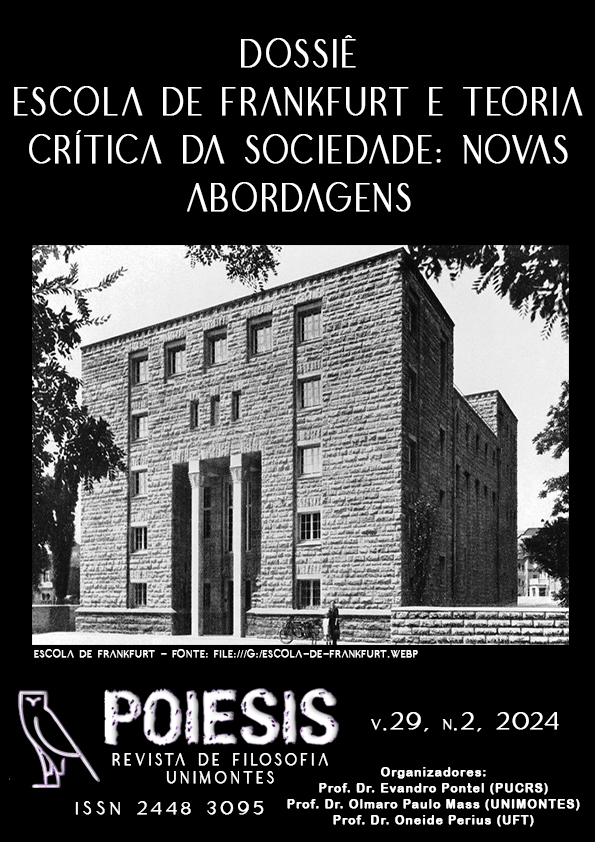NEW DEVICES, OLD DOMINATION
DOI:
10.46551/2448-30952024v29n202Abstract
Nowadays, a certain idea of “democratic culture” was established with the property of
enabling a more egalitarian society, solely based on access to mass production. This idea, as is known,
is made possible through intensive advertising procedures not attributed as a means aimed at resolving
vital needs, but, especially, as a complex mechanism aimed at creating unnecessary needs determined
by an apparent reality that acts within the scope of human subjectivity in an integrated way. This
standardization, as expression, presented through icons and factory images tends to eliminate the
particularities of different instances of social life in the modern exchange relationship societies, due in
part to a compromised reception of technology indifferent to its own constructive condition, whereby
the humanity would reach such a condition that would, perhaps, make it possible to organize society in
a different way. If the impossibility - real or not - of formulating theoretical criticism of this state of
affairs still persists today, therein lies the necessary continuity of Critical Theory from a new
approach, considering its effective contribution as something not yet fulfilled.
Downloads
References
ADORNO, Theodor. A filosofia muda o mundo ao manter-se como teoria. Entrevista, Der Spiegel, n° 19. In: Lua Nova, Revista de Cultura e Política, n° 60. São Paulo, 2003. __________. Crítica de la cultura y sociedade I. Madri: AKAL, 2008. __________. Marx está superado? In: Opções de Esquerda. Rio de Janeiro: Paz e Terra, 1972.
BENJAMIN, Walter. Passagens. Belo Horizonte: UFMG, 2018.
DE MORAES, Lucyane. Theodor Adorno & Walter Benjamin: em torno de uma amizade eletiva. São Paulo: Edições 70, 2023.
ÉSQUILO. Prometeu acorrentado. Textos teatrais para download - Versão digital. Disponível em: www.oficinadeteatro.com
FRASE, Nancy. Reconhecimento sem ética? In: Lua Nova, Revista de Cultura e Política, n° 70. São Paulo, 2007.
FROMM, Erich. Do ter ao ser. São Paulo: Manole, 1992.
HABERMAS, Jüngen. Técnica e ciência como ‘ideologia’. São Paulo: UNESP, 2014.
HARVEY, David. Condição pós-moderna: uma pesquisa sobre as origens da mudança cultural. São Paulo: Loyola, 1993.
HONNETH, Axel. Luta por reconhecimento: a gramática moral dos conflitos sociais. São Paulo: Ed. 34, 2003.
HORKHEIMER, Max. Eclipse da razão. São Paulo: Centauro, 2002. __________. Teoria crítica: uma documentação. Tomo I. São Paulo: Perspectiva, 2011.
MARCUSE, Herbert. A ideologia da sociedade industrial: o homem unidimensional. Rio de Janeiro: Zahar, 1973.
MARX, Karl. O Capital. Volumes I-III. São Paulo: Abril Cultural, 1983.
WELLMER, Albrecht. Sobre la dialéctica de modernidad y posmodernidad: la crítica de la razón después de Adorno. Madri: Editorial Machado Libros, 2004.
Downloads
Published
How to Cite
Issue
Section
License
Copyright (c) 2024 Revista Poiesis

This work is licensed under a Creative Commons Attribution-NonCommercial-NoDerivatives 4.0 International License.





.png)

